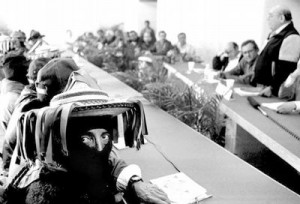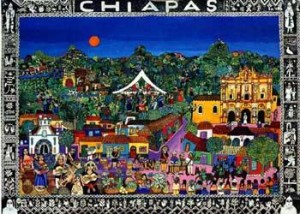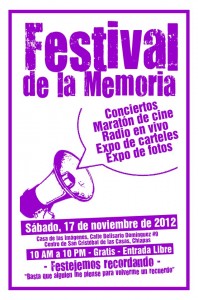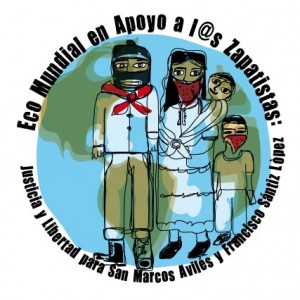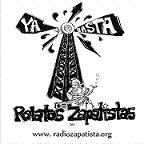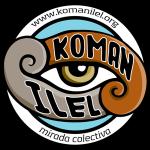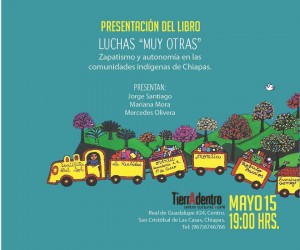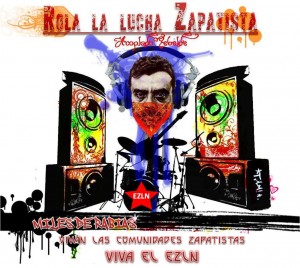
zapatismo
San Andres and the dialogue that needs to continue
Los llamados diálogos de San Andrés fueron las negociaciones que se emprendieron entre el EZLN (acompañado por la sociedad civil) y el Estado mexicano entre octubre de 1995 y febrero de 1996 con la intención de lograr una nueva relación entre el Estado y la sociedad poniendo particular atención en revertir la explotación y marginación en la que se encuentra sumida la población indígena del país. Los diálogos se llevaron a cabo en el pueblo tsotsil de San Andrés apellidado “Larráinzar” por el gobierno y rebautizado como “Sak´am Ch´en De Los Pobres” por los zapatistas con la intención de traer a la memoria la historia prehispánica y colonial de aquella comarca india.
Además del gobierno mexicano y el EZLN, en los diálogos participaron la Comisión Nacional de Intermediación (CONAI), una comisión de distintos activistas e intelectuales, presidida por el obispo Samuel Ruiz, la Comisión de Concordia y Pacificación (COCOPA) una comisión de legisladores de las dos cámaras federales y el Congreso local. Un sector significativo de la sociedad civil nacional e internacional estuvo involucrado tanto en los cinturones de paz como en las asesorías durante el diálogo. Del encuentro surgido en la primera mesa correspondiente a derechos y cultura indígena, el 16 febrero de 1996 se llevó a cabo la firma de los acuerdos de San Andrés.
Sin embargo es importante recalcar que en San Andrés no sólo se trataría el tema de Derechos y Cultura Indígena. Una de las estrategias del gobierno federal ha sido la de encasillar al movimiento zapatista en la “cuestión indígena” y después tiladarlo como un movimiento que pretendía la “independencia” o separación de Chiapas. Esto va en clara contraposición con los objetivos del EZLN que desde la Primera Declaración de la Selva Lacandona se reivindicó como un movimiento de Liberación Nacional que además se reconocía como heredero no sólo de los 500 años de lucha y resitencia indígena, sino también de Hidalgo, Morelos, Vicente Guerrero y del “pueblo trabajador en sus luchas de huelga”.
Simultaneamente, tanto la urgencia dentro de diversos sectores para parar la guerra como las simpatías que atrajo su “Ya Basta”, sirvieron para crear una confluencia de fuerzas políticas, intelectuales, organizaciones civiles y personas de “a pie”. Esta confluencia se dió cita en San Andrés para conocerse y dialogar, conjuntamente y pensar-repensar el proyecto de nación. Es decir, el puente que fue San Andrés implicó el ensayo de un nuevo proyecto de nación, un nuevo pacto social y político. Prueba de ello es las otras mesas que estaban planeadas:
1. Derechos y Cultura Indígena.
2. Democracia y Justicia.
3. Bienestar y Desarrollo.
4. Conciliación en Chiapas.
5. Derechos de la Mujer en Chiapas.
6. Cese de hostilidades
De ellas, sólo la segunda se alcanzó a comenzar. Los temas de esta segunda mesa planteaban muchos de los temas que continúan siendo no sólo vigentes, sino urgentes:
1. Democracia política e instituciones públicas.
2. Democracia social y justicia social.
3. Organizaciones sociales y participación ciudadana.
4. Justicia y derechos humanos.
5. Justicia, convivencia social y orden jurídico.
6. Democracia y medios de comunicación.
7. Democracia y soberanía nacional.
La segunda mesa se constituyó como un espacio para honrar y exigir la presentación de aquellos que han luchado precisamente por Democracia y Justicia: Dentro de la primera lista de asesores estaban no sólo los presuntos zapatistas, es decir, los presos políticos sino también los desaparecidos. Los desaparecidos que siguen siendo una llaga en la memoria histórica nacional a pesar de las distintas formas de instaurar el olvido y la desmemoria como política de estado.
Entonces, ¿qué significaba San Andrés para México y en particular esta segunda mesa?
Un espacio de encuentro, de discusión sobre la necesidad de refundar la nación a través del diálogo en el que fueron invitados a converger las distintas fuerzas políticas y sociales. El convocante era el EZLN pero era y es un convocante que planteaba una política muy otra, algo que el gobierno nunca ha entendido.
Si bien en algún momento los acuerdos de San Andrés reflejaban la aceptación del gobierno mexicano de permitir y propiciar la construcción de la autonomía de los pueblos indígenas, esa situación nunca se dio en los hechos y en cambio la vía del diálogo se fue cerrando cada vez más. Ante esto, el EZLN decidió emprender un proyecto que le hiciera ejercer la autonomía por su propia cuenta. Después de estos momentos posteriores al levantamiento, los intentos de diálogo y las necesidades de mantener viva una lucha, se vuelve evidente la situación de que el trabajo organizado, el trabajo de construcción y el trabajo organizativo a partir de las comunidades y sus propios proyectos son los que van a hacer el cambio.
Es entonces como para el movimiento zapatista el Estado dejó de ser interlocutor. La traición de los Acuerdos de San Andrés y la ruptura del proceso de diálogo, no sólo representó la negación rotunda a reconocer los derechos de los pueblos indígenas, sino también la oportunidad hacia una transición dialogada con el Estado hacia la democracia. Lo que ahora vivimos en México es la agudización de las contradicciones de un Estado mafioso e ilegítimo que utiliza la violencia, la generalización de la violencia, es decir, la guerra como única forma de continuar ejerciendo el poder. El puente se quemó. Lo quemó el Estado mexicano.
La poca disposición de diálogo verdadero por parte del Estado y la implementación en cambio de una guerra de baja intensidad, forzó a transformar hacia la exigencia de construir perspectivas alternativas como la verdadera transformación de la relación con el Estado, al ir construyendo poco a poco una fuerza social capaz de convertir las demandas en logros, en construcciones propias. El proceso de conflicto y la propia experiencia de construcción de las comunidades hizo ver que el cambio verdadero no vendría del Estado, que había que conseguirlo a partir de la práctica.
En eso estamos caminando y todavía falta lo que falta…
Programa de Radio Sobre los Diálogos de San Andrés a 17 años de la firma de los acuerdos de la Mesa de Derechos y cultura indígena [2 horas]
[podcast]http://komanilel.org/RADIO_KOMAN/PROGRAMA-DIALOGO_SAN_ANDRES.mp3[/podcast]
En el que hablamos de cómo San Andrés fue un ensayo en el que la propia sociedad imaginaba y construía su nación a través de un diálogo sin precedentes entre personas tan diversas, un proceso que sigue pendiente. Con esta reflexión pensamos en la necesidad de seguir imaginando, de continuar este proceso de diálogo entre nosotr@s como sociedad, de continuar esos procesos de reflexión creativa colectiva para reinventarnos, para buscar cómo articular nuestras islas de autonomía en un proceso más amplio y fuerte, en la construcción de un mundo en el que quepamos todes.
MÁS INFO SOBRE LOS ACUERDOS DE SAN ANDRÉS
AUDIO:
Programa de Radio realizado en 2011 para explorar Los Acuerdos de San Andrés a su 15 aniversario [Duración: 33 mins]
[podcast]http://komanilel.org/RADIO_KOMAN/PROGRAMA_ACUERDOS_DE_SAN_ANDRES.mp3[/podcast]
Programa de Radio “La insurrección del fuego y la palabra”
[podcast]http://komanilel.org/FESTIVAL_MEMORIA/MESA3.mp3[/podcast]
que aborda el período historico de lucha en chiapas de 1994 a 2003, llevado a cabo en el festival de la memoria con motivo del 29 aniversario de la fundación del EZLN
TEXTO:
Resumen de los Acuerdos de San Andrés
Material informativo de apoyo a la consulta convocada por el EZLN sobre la ley elaborada por la COCOPA en materia de derechos y cultura indígena.
http://komanilel.org/BIBLIOTECA_VIRTUAL/Acuerdos_de_San_Andres-resumen.pdf
Cuadro comparativo entre los acuerdos de San Andrés y la reforma constitucional de 2001
Muestra las divergencias entre los Acuerdos de San Andrés y la reforma constitucional sobre derechos y cultura indígena. El cuadro fue publicado en la revista Yorail Maya del Centro de Derechos Humanos Fray Bartolomé de las Casas.
http://komanilel.org/BIBLIOTECA_VIRTUAL/Cuadro_comparativo.pdf
Los Acuerdos de San Andrés
edición bilingüe tsotsil-español publicado por el Centro Estatal de Lenguas, Arte y Literatura Indígena.
http://komanilel.org/BIBLIOTECA_VIRTUAL/Los_acuerdos_de_San_Andres.pdf
Documentación histórica en CEDOZ
Sobre Los Acuerdos de San Andrés en Centro de Documentación sobre Zapatismo.
http://www.cedoz.org/site/content.php?cat=6
Un historial del diálogo de paz
Recuento de los diversos momentos de diálogo entre el EZLN y el GF. Texto de Andres Aubry.
http://www.edualter.org/material/ddhh/aubry.htm
Los desacuerdos de San Andrés
Artículo de opinión de Andrés Aubry para el octavo aniversario de la firma de los acuerdos de San Andrés
http://www.chiapas.ch/print_artikel.php?print_ID=330
Los Acuerdos de San Andrés 10 años después
Boletín de CIEPAC
http://www.ciepac.org/boletines/chiapasaldia.php?id=494
San Andrés: los saldos de un incumplimiento.
Artículo de Francisco López Bárcenas en 2004
http://www.cedoz.org/site/content.php?doc=402&cat=64
